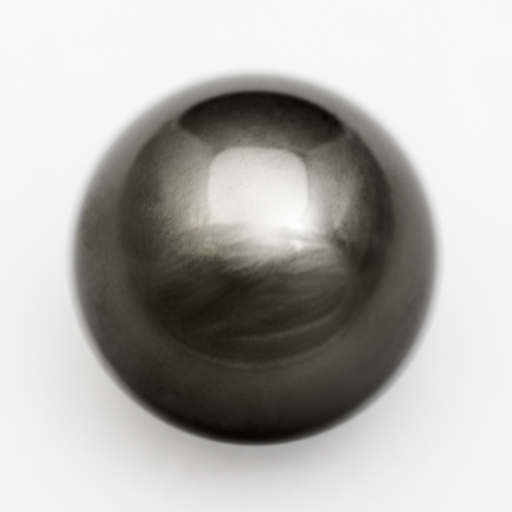Ceramic Balls
Silicon Nitride (Si3N4)
Engineered for high precision applications, silicon nitride ceramic balls deliver unsurpassed performance in critical components such as hybrid bearings. Specified for use in such high-technology industries as aerospace and defense, high-spec ceramic balls feature these advanced characteristics:
- Lightweight Silicon Nitride weighs 60% less than steel which reduces centrifugal force, skidding and wear under high speed and acceleration. Superior Surface Finish, Ra 0. 1 7-0.25 maximum micro inches may extend L-10 life to as much as 100 times that of steel bearings.
- High Temperature Hardness is twice that of steel. These all-ceramic balls retain their strength and hardness up to 1800 degrees F. Silicon Nitride is further characterized by its low density of 3.2 g/cc, high flexural strength of 1.0 GPa, and fracture toughness of 6 MPa/M2.
- These outstanding properties, together with manufacturing standards regarding sphericity, diameter tolerance, and surface finish, make silicon nitride balls ideal for high performance ball bearings.
Zirconium Oxide (ZrO2)
Operating two to three times longer than metal or carbide in certain applications, zirconia oxide is superior in corrosive and erosive environments. Being lighter in weight also helps reduce damage to mating components.
Aluminium Oxide (Al2O3)
Standard 99.5% alumina oxide ceramic balls have proven performance in wear, heat and corrosive environments as well as in maintaining dimensional stability at temperatures up to 2000 F. Alumina resists oxidation and is tolerant to water, salt solutions, and many chemicals and acids.
Silicon Carbide (SiC)
Silicone Carbide balls exhibit good wearability and extremely high working temperatures of +1000°C. This electrically conductive, nonmagnetic ceramic material is self-lubricating and has extreme corrosion resistance. In addition, silicon carbide has a low coefficient of thermal expansion and very high hardness (Hv 2000).

